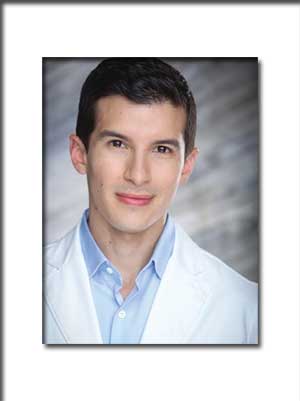- Home
- Editorial
- News
- Practice Guidelines
- Anesthesiology Guidelines
- Cancer Guidelines
- Cardiac Sciences Guidelines
- Critical Care Guidelines
- Dentistry Guidelines
- Dermatology Guidelines
- Diabetes and Endo Guidelines
- Diagnostics Guidelines
- ENT Guidelines
- Featured Practice Guidelines
- Gastroenterology Guidelines
- Geriatrics Guidelines
- Medicine Guidelines
- Nephrology Guidelines
- Neurosciences Guidelines
- Obs and Gynae Guidelines
- Ophthalmology Guidelines
- Orthopaedics Guidelines
- Paediatrics Guidelines
- Psychiatry Guidelines
- Pulmonology Guidelines
- Radiology Guidelines
- Surgery Guidelines
- Urology Guidelines
Meet the Neurologist at Massachusetts General Hospital who has mirror-touch synesthesia

New York : Joel Salinas, a neurologist at Massachusetts General Hospital can literally feel the emotional and physical sensations of his patients.
Salinas has mirror-touch synesthesia, a neurological trait that affects two out of 100 people.
"Someone is doing compressions ... and as this is going on, I'm feeling the compressions on my chest as if it were happening on my body. As he died, I felt this kind of hollow slipping sensation ... and after that I ran to the bathroom and threw up," Salinas was quoted as saying by CNN.
"It's essentially a glitch in my brain's wiring where I feel physically on my body what I see other people feeling. For example, if you are gasping for air, I feel like I'm gasping for air. If you're having a panic attack, I feel like I'm having a panic attack," he said.
The first case of mirror-touch synesthesia was reported in 2005.
While growing up, Salinas always sensed that he was a little different and could feel the emotional and physical sensations of others as a kid.
"I remember watching cartoons as a kid. ... I'd watch Wile E. Coyote, and if he got hit by a truck, I got hit by a truck," he said. "Even in high school, I saw a lot of fights, and that was tough."
It wasn't until his first year of medical school that he learned about synesthesia. Later, he was tested for mirror-touch and confirmed he had it.
"He is very much in tune with how you're feeling and how those feelings change over time. When I was in his office for the first time, he said, 'How are you?' and I said, 'I'm OK, but I'm anxious.' His response was, 'I know,' " Bob McGrath, Salinas' patients recalled.
Salinas said he uses mindfulness to stay focused, especially around patients who are suffering from their own injuries and disorders.
He has also written about his experiences in a new book, "Mirror Touch: Notes From a Doctor Who Can Feel Your Pain."

Disclaimer: This site is primarily intended for healthcare professionals. Any content/information on this website does not replace the advice of medical and/or health professionals and should not be construed as medical/diagnostic advice/endorsement or prescription. Use of this site is subject to our terms of use, privacy policy, advertisement policy. © 2020 Minerva Medical Treatment Pvt Ltd